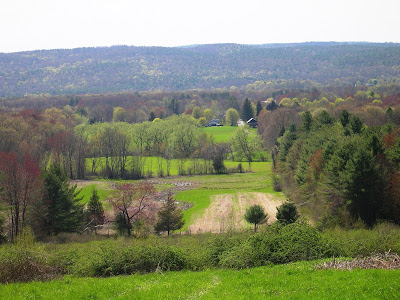Holiday Blessings!
Around the world, during the months of October and November, people celebrate various observances for those who have died. Honoring the dead during is different from culture to culture. Yet, many of the old ways inform how we celebrate and honor the dead, today
Halloween comes from an ancient Pagan feast called, Samhain. This was part harvest celebration and part feast of the dead, because the Pagan people of Ireland and Great Britain believed that during this time of the year, the veil that separated this life from the next was lifted. They believed their dead ancestors would come to visit, along with unwelcome spirits. The creation of jack-o-lanterns was a way to keep unwanted ghosts from visiting.
Image via Wikipedia
JACK-O-LANTERNS
Later, this celebration was divided into two celebrations - All Saints Day and All Souls Day. The faithful would celebrate all the saints, asking for help or intercession in the year ahead on All Saints Day and pray for the souls of those that had died that year on All Souls Day. All Souls Day is called the Day of the Dead in Mexico. These holy days are observed each November 1 and 2.
STATUES FROM THE DAY OF THE DEAD
Halloween or All Hallows Eve is observed the night before All Saints Day - October 31. Part ancient feast and part religious ceremony, during the early days of this celebration, children would dress up as saints, usually their name saint, to march through the streets of the village collecting money and gifts for the poor.
In Japan, the observance is a bit earlier - around August 15 - and is called the Bon Festival. This is a Buddhist tradition, which comes from a legend of a man who asks Buddha to help him after he realizes that his mother is in the realm of the Hungry Ghosts. Buddha told the man to pay homage to the monks. He did, his mother was released from the Hungry Ghost realm and the man danced with joy. This feast is a joyous occasion with song, dancing and fireworks.
The Korean observance, also around August 15, is called Chuseok. The Koreans give thanks to their ancestors for a good harvest. Like Japan, there is dancing, food and drink.
The honoring of ancestors in China occurs in April during Qingming or Tomb Sweeping Day. Chinese families meet at the tombs of their ancestors and literally clean them, burning incense and offering prayers.
image via Wikipedia
BON FESTIVAL
The Korean observance, also around August 15, is called Chuseok. The Koreans give thanks to their ancestors for a good harvest. Like Japan, there is dancing, food and drink.
BURNING OFFERINGS ON QINGMING
Image via Wikipedia
~~~~
Honoring our ancestors, our dearly beloved family and friends is as important today as in the past. Regardless of when or how you honor the dead, may your memories be joyous and may the be balm for your heart and bring you peace.




Comments